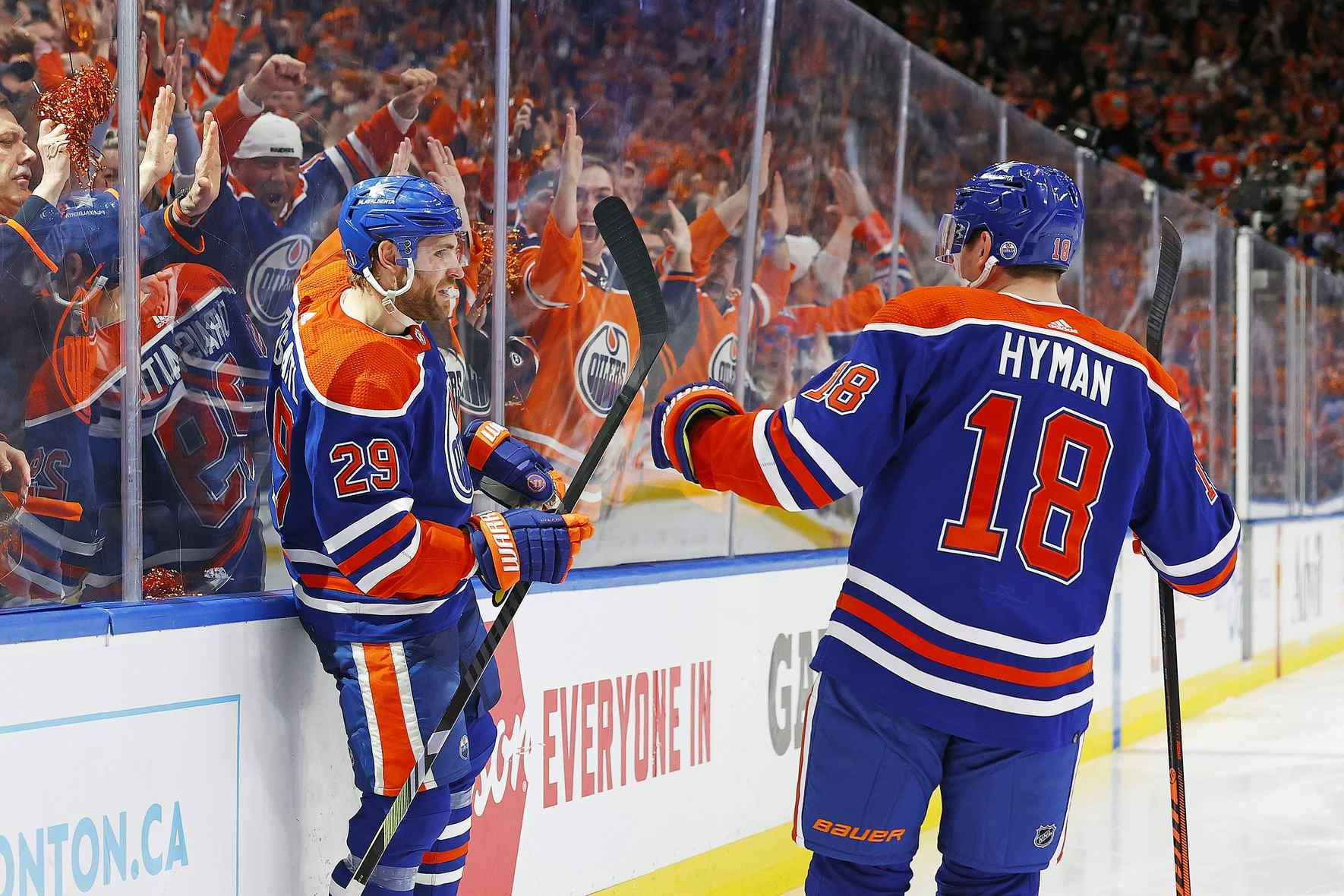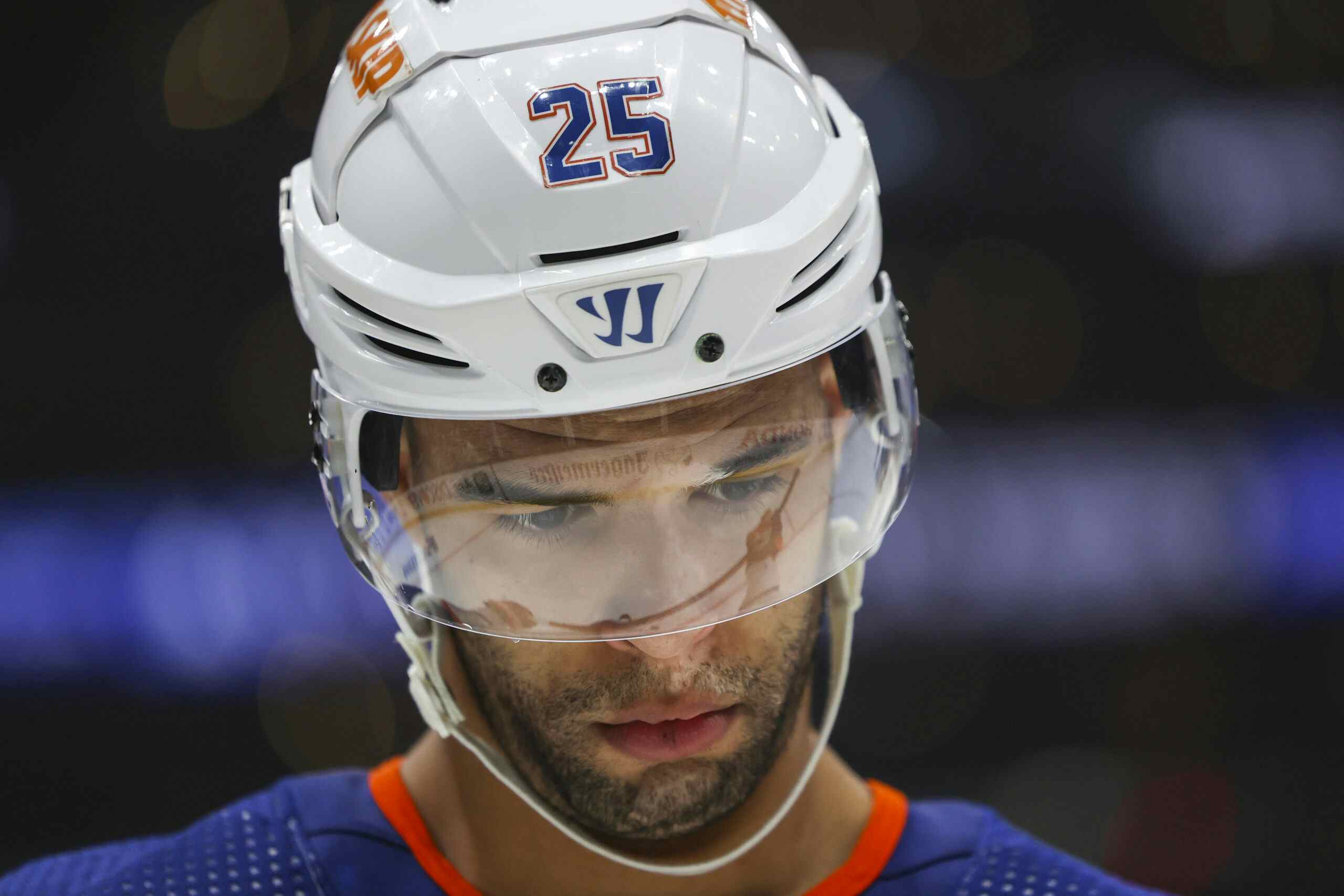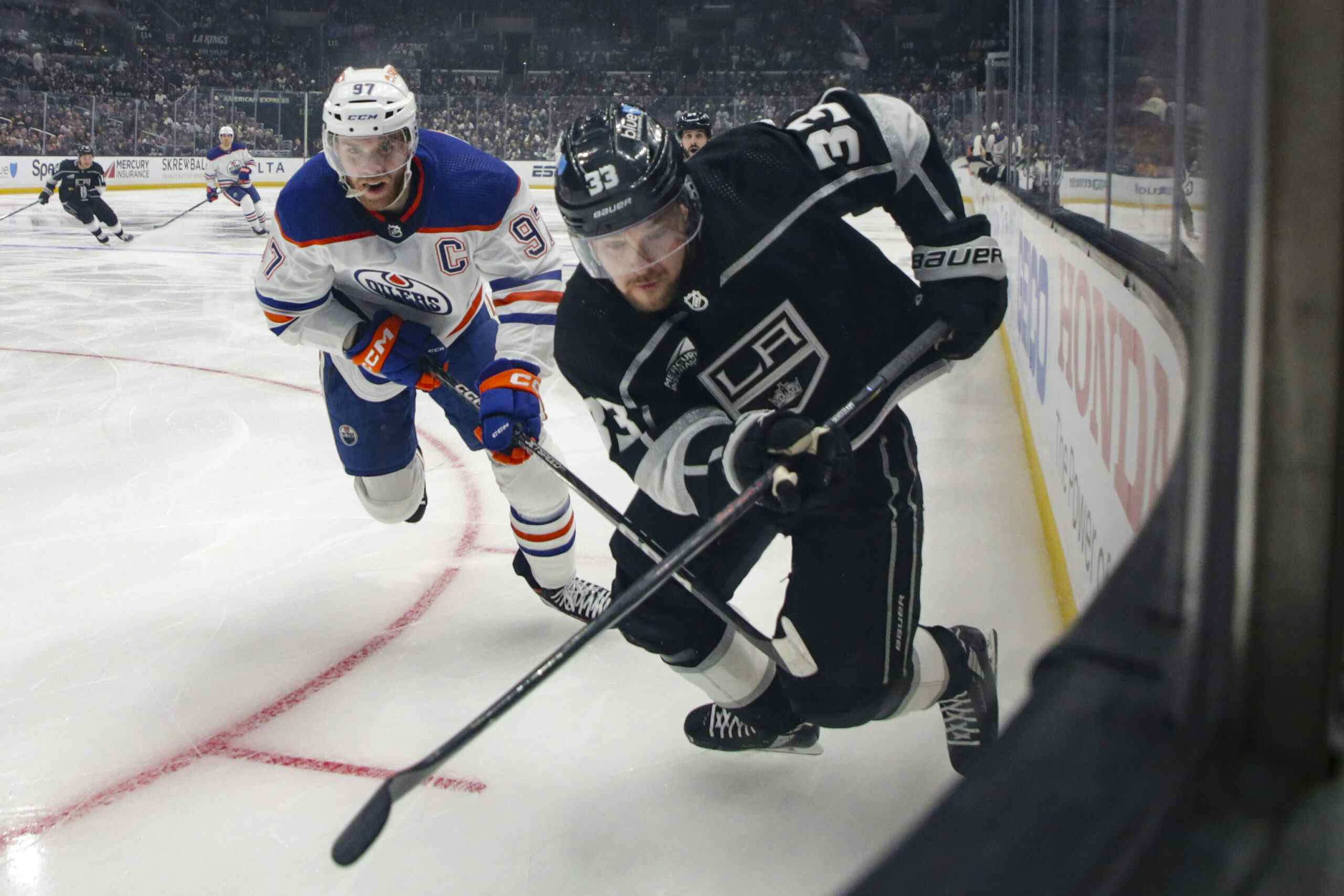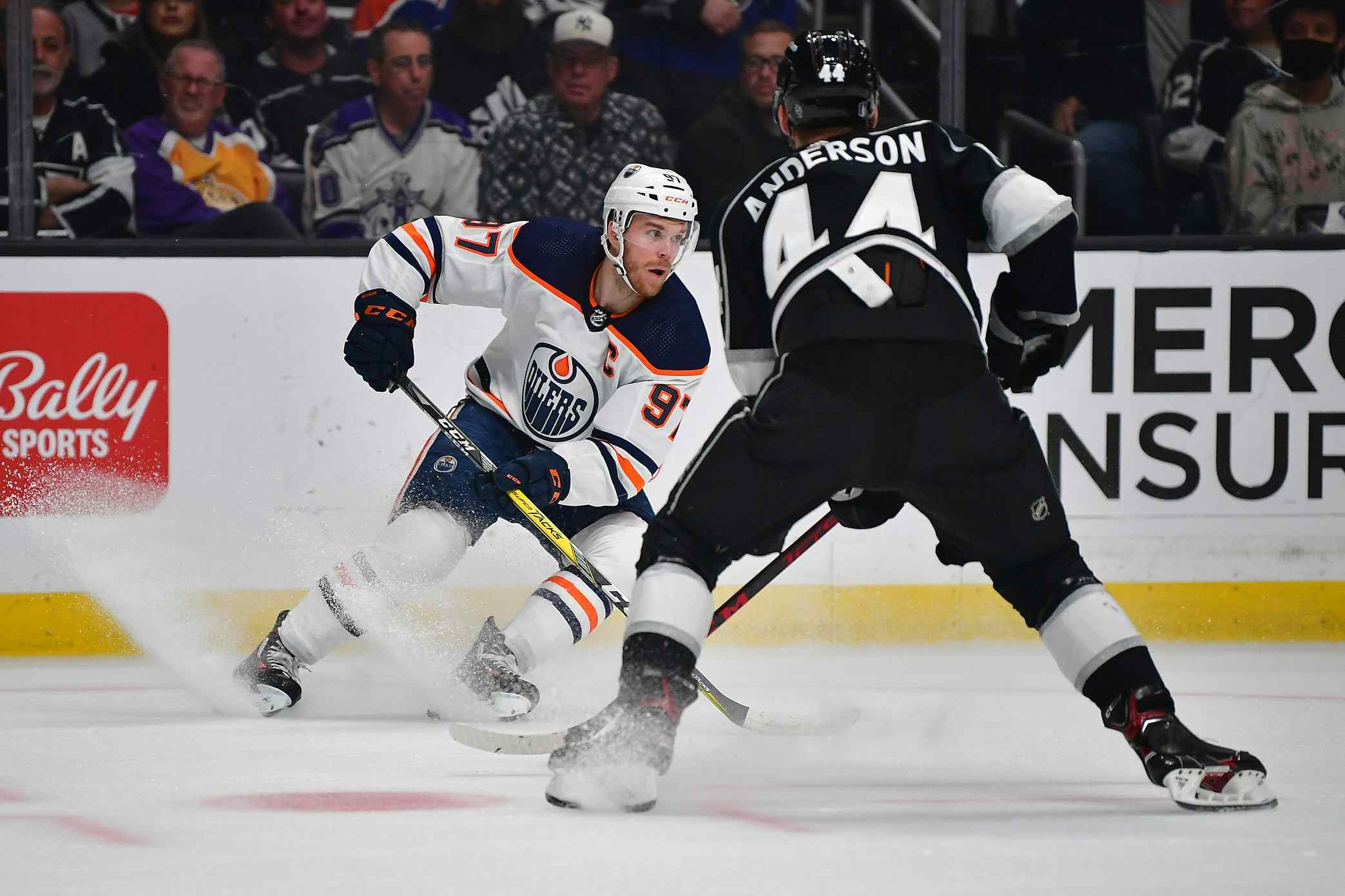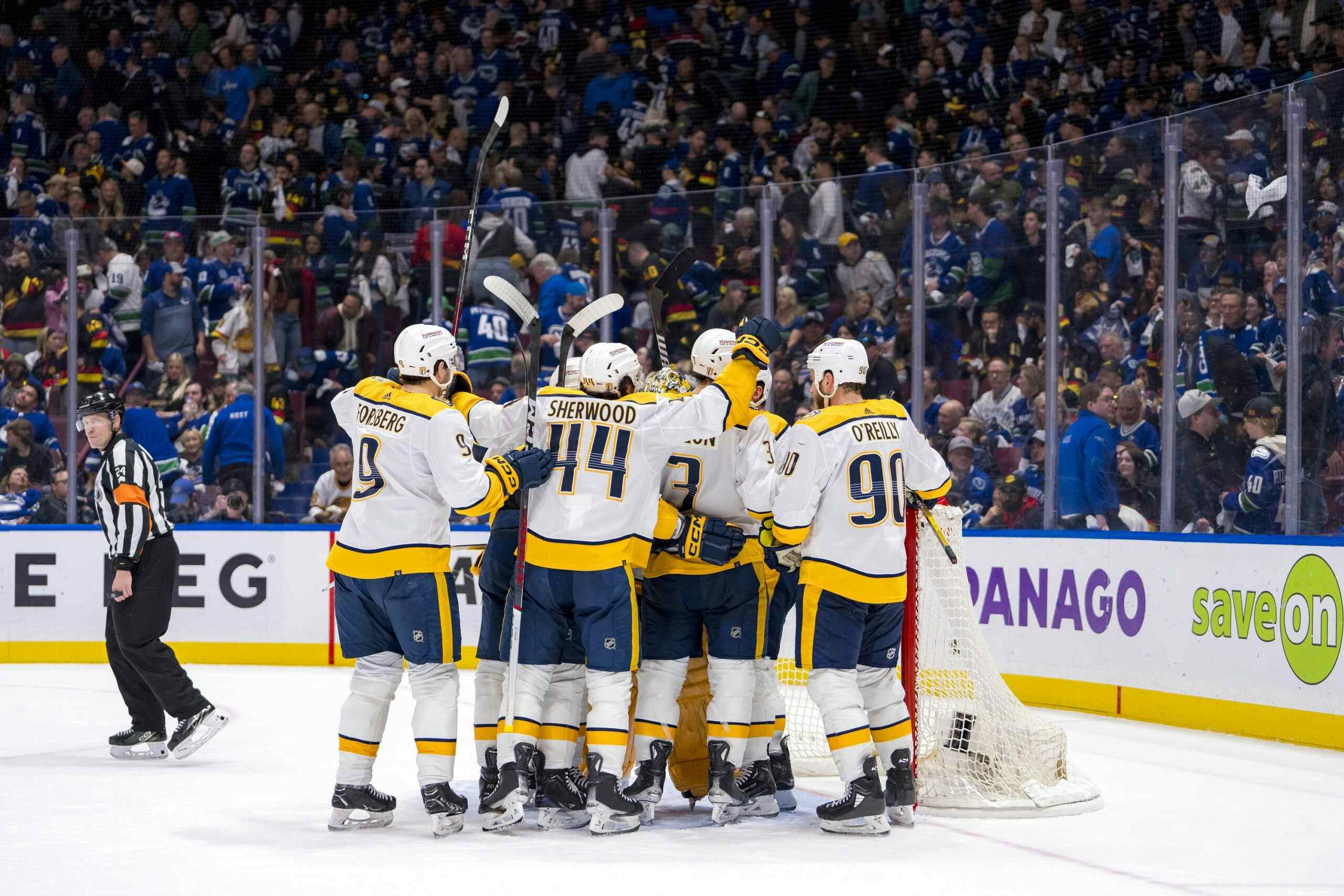CATCHING UP WITH MCSORLEY
By Jason Gregor
10 years agoMarty McSorley was in Edmonton this past weekend for the Face Off for Alzheimers Pro Am. He’s still a huge fan favourite, as he went first overall in the draft. I had a long chat with Marty at the draft about a variety of topics, and then he came on my radio show to discuss suspensions, intimidation, playing tough and how players learn to compete at the NHL level.
Gregor: How many times did you get suspended in your career?
Gregor: How many times did you get suspended in your career?
McSorley I had my share. I’ll be perfectly honest; sometimes the threat of taking a suspension certainly quieted down the game, quieted down then bench and let my guys get back to doing what they did best.
Gregor: Can that happen in today’s game?
McSorley: I don’t know. I was just talking with a gentleman here in Edmonton. I don’t know if I could do that job today. There are third and fourth line guys that would look at the tough guys and say, “Go ahead and do something.” What you used to get three or four games for, today you would get twenty, twenty-five games.
You used to be able to impose a the threat to convince guys to not go out and put the stick into Gretzky, Mario, Joe Sakic, or Stevie Yzerman, and those guys, I don’t know if you can stop that now. I think those guys are a lot more susceptible to getting hit by anybody and everybody.
Brownlee: When you say you got suspended a few times, are you talking about having your own chair at NHL Head Offices with your name embroidered on it?
McSorley: (laughing) Luc Robitaille slashed a guy in front of the net once and he was talking to the media after the league gave him three games. He said, “Well, I’m sorry,” and I said, “Excuse me for a second.”
I took Luc aside and told him, “Luc, you look at the camera and say, ‘I meant to do it, I needed to do it, guys takes liberties with me, I’m going to do it again if it means I’m going to have to protect myself.” I told him,“You’re going to get a lot more space, use the three games to rest, you’ll get all your goals back and you’ll be rested for the playoffs.” There were times I’d say to guys, “Ok, I’m going to go out and I’m going to do something here and not everybody’s going to like it, and I hope everybody sees it on Sportscentre.” Because when you go by a team, in front of their bench, and say, “You guys better stop or somebody’s going to get hurt,” they know you mean it. Dave Semenko had a great line. He said to me once, “Every now and then we must remind them."
Gregor: How do you have that on-ice respect, that on-ice self-policing now, given the state of the game?
McSorley: You know, it’s interesting. Obviously the kids have worn facemasks and that had an impact on how guys carried their sticks and how guys hit each other, and when all the kids coming up had worn facemasks their whole lives it changes how they react to one another.
Now you’ve got it to where people can turn to the boards with no fear, meanwhile they’re still getting hit every now and then and still getting hurt. I just think you have to go back to minor hockey and teach the respect. Teach people to be responsible for how they hit and how they get hit, their own positioning. Put it back into the game. I mean, your stars are getting hit and they’re getting hit often. You know the coaches are circling three or four players on each team before the game saying, “Make sure you finish those guys. Those guys? You know, Sidney Crosby- will Sidney Crosby be able to last a whole playoffs? I don’t know. I think people take liberties. Mark Howe said it, when he went into the Hall of Fame. “I’m not sure we can govern the game from a board room in New York,” and I have to agree with him in a lot of ways.
Brownlee: Characters in the game, the make up of teams, it somehow seems pasteurized now. Maybe this version of the Oilers, to be specific to Edmonton, has a bunch of good kids, and they’re nice guys, and so on and so forth, but they are all the same. It seems to me, on a lot of championship teams, there were characters, there were a couple of bad acts, there were a whole bunch of people from the spectrum of character and personality. Do you see that in the game anymore? Are there still those characters, or are they being muffled by media relations guys?
McSorley: Well it’s interesting. I was in Calgary last weekend and the reporters there were saying the guys are scared to death to say anything. They just almost walk by. There’s so much social media. The guys in Edmonton, when we grew up during the Cup years, the media was great to them and the fans in Edmonton were great to them. They’d look the other way when the guys would have little indiscretions and different things.
They said those are the boys being boys because they knew the guys were going to go out on the ice and play as hard as they possibly could. Deep down, they were good guys. I don’t know if those indiscretions get looked past now or they just get so over-analyzed. There’s Twitter and Facebook. I know the LA Kings, Luc Robitaille pulled some of the young guys in and said, “Listen, you can’t say this, you can’t do this, you can’t post this.” Social media has had a big effect on pasteurizing, making it bland, and scaring them a bit about being who they were. We laugh and say, if they had camera phones going back to when we were playing, what would have been out there and there’s a lot of truth to it. I don’t want to blame social media, but I do think that it has an effect on it.
Gregor: The odd player who does engage on social media becomes well-known. Is that good or bad?
McSorley: It’s sad when the voice of sports is Chad Ocho Cinco, Terrell Owens, or Jeremy Roenick. If those guys are the voice of sports, we’re in big trouble. I’d really love to hear Derek Jeter say something that’s quasi-controversial. Have Sidney Crosby say something that he’s thought through and then he really believes in, but may not be agreed upon by everyone. I think the guys are a little scared to say it now.
Brownlee: A shot at JR hey? Interesting.
McSorley: (laughing) I tease JR. I’ll see him at events and I’ll give him a, “Yak, yak, yak, yak, yak,” kind of sign with my hands. I do. I give JR a hard time and tease him. Again, if your stars come out and they say something that’s really relevant and meaningful- again, the personality of the guys, there’s so many great characters in the game, I still believe there is. I just think they’re a little timid to get it out there. I hope the young guys in Edmonton show their personalities because the people in Edmonton were certainly great with our crew of guys. They’d look the other way when need be and they would make the comment, “boys are being boys,” and allowed us to go out on the ice and do what we did.
Gregor: The Oilers don’t have a lot of guys who just have any sort of nastiness in their game. Either you have it or you don’t. Can other guys help you become more of a competitive player, or does most of that have to come from within?
McSorley: No, I think that has to come from within. I think at the core of it, when you looked at the guys that we had; Lee Fogolin was a really tough guy. He was a tough person. Charlie Huddy took a beating and he just kept playing, nothing fazed him, he never got intimidated. There was a lot of toughness in that lineup, like Glenn Anderson, that people didn’t really associate with being tough. That team was tough and that’s who we were. I remember having an argument with Mark Messier, I don’t believe you can make a guy into a tough person. I think his character is there when you need it most, when it’s sudden, and it happens quickly. So no, I think that competitive factor has to come from within.
I really like to watch the Oilers. I love to watch their young players play and I think some of them know how to compete. The nastiness and things, I think that you kind of know which guys around the league deliver it. I think you see it when a guy first comes into the league. Glen Sather was phenomenal with me. I’d go out and get in a big fight, something the team felt they really needed. I’d get the second half of the next power play, because Glen really appreciated it and so did the guys. The guys appreciated it and they let you know. It just enabled me to grow as a player.
Brownlee: When you look at this version of the Oilers, there is some terrific young talent, but do you see that component or nastiness?
These young guys, from the moment they’ve come into the National Hockey League, they’ve not been on a winning hockey team. I don’t think you can discount them yet, I think that these guys are winners at heart. I really do. I watch the way they’ll pick up the pace of a hockey game, and want to make plays, and want to improve as players. That’s a good core. That’s a good starting point for these kids. If you could surround them with two or three of those guys who’ve had some success, who could look them in the eye and challenge them, and go right out there and play right alongside them. I think it would really work wonders with these guys. I think MacT has to be looking in that area.
WRAP UP
It seems anyone who watches the Oilers recognizes the need to find some veterans who can play, and also mentor the kids. You can’t expect them to learn how to compete from your coach, GM or president. It has to come from guys who you battle with on the ice every night.
McSorley had some great stories at the draft, and he is considering writing a book. I hope he does.
STREAKCRED
Don’t forget to play StreakCred, the new playoff pool game from the Nation Network. You can win a trip for 2 to Oktoberfest in Germany among the awesome prizes up for grabs. Only $20 and a portion of the proceeds go to Edmonton Charities. Sign up here.
RECENTLY BY JASON GREGOR
Recent articles from Jason Gregor

